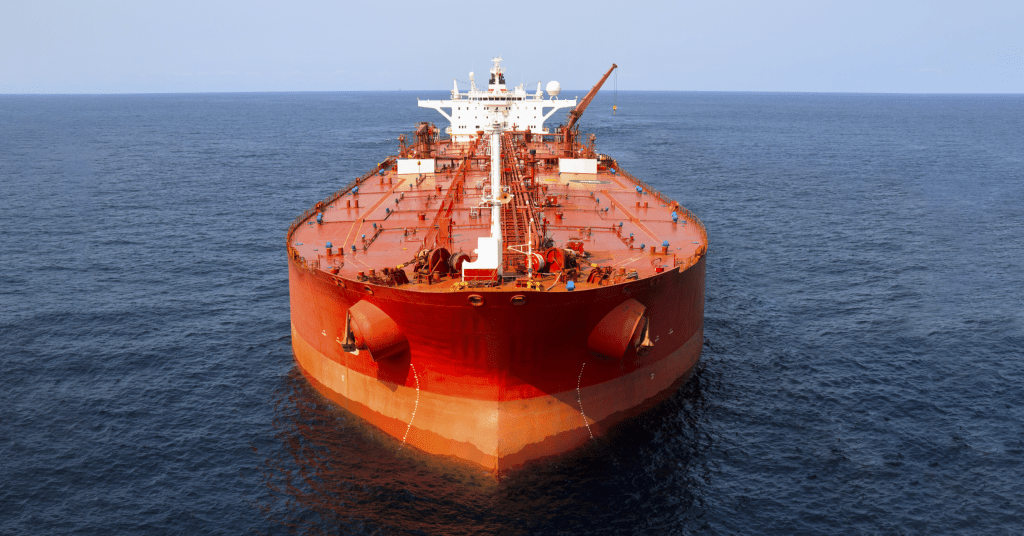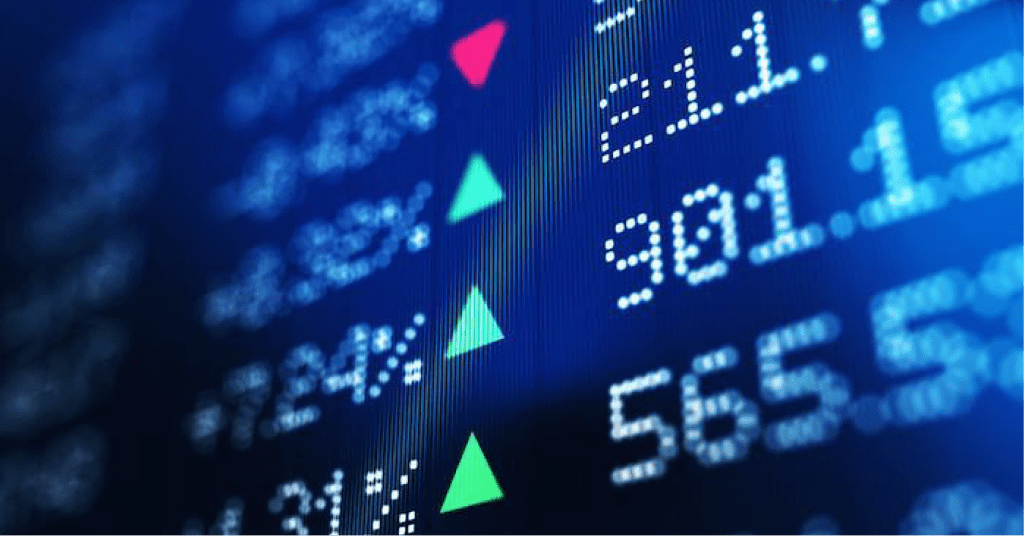Welcome to the January 2025 edition of the Duplo Economic Digest! The new year kicks off with a wave of promising developments in Nigeria’s economy and beyond. This month, we dive into the latest financial trends, policy shifts, and market movements shaping the year ahead.
Nigeria Macroeconomic Recap
With less reliance on foreign fuel, the federal government seeks to boost investment and trade

Free from the shackles of foreign fuel?
It’s only right to start the new year with good news. Nigeria’s gasoline imports have dropped to the lowest in almost years as the Dangote refinery ramps up production, reducing reliance on foreign supplies. Bloomberg reported that from January 1 to 24, 2025, fuel shipments into Nigeria stood at about 110,000 barrels a day – the lowest since 2017 – based on data compiled by analytics firm Vortexa Ltd. Even though it is not operating up to its full capacity yet, the Dangote refinery is boosting Nigeria’s fuel independence by reducing imports.

One more push for unified trade
The Federal Government plans to roll out the National Single Window (NSW) system to reduce business costs at Nigerian ports. Announced by the Minister of Marine and Blue Economy, Adeboyega Oyetola, the system aims to streamline operations, improve transparency, and minimise delays. It will be implemented alongside the Port Community System (PCS) to modernise trade processes and maximise marine resource utilisation. The NSW will serve as a unified platform for trade stakeholders—including importers, exporters, banks, carriers, and government agencies—enabling seamless trade operations. Nigerian Ports MD, Dr Abu Dantsoho, described it as a global best practice for electronic trade data exchange, facilitating efficient cargo movement across transport modes. The initiative is expected to reduce clearance times, eliminate revenue leakages, and position Nigeria as a global trade hub.
Nigeria has attempted to implement the National Single Window (NSW) system multiple times, but with limited success. The idea was first introduced over a decade ago to streamline trade processes and improve port efficiency. Various administrations have announced plans for its implementation, but issues such as bureaucratic bottlenecks, lack of coordination among government agencies, and technological challenges have hindered its full rollout.
- In 2011, the Nigerian Customs Service launched the Nigeria Trade Hub, an early step towards a Single Window system.
- In 2016, the government reaffirmed its commitment to the NSW, but progress stalled.
- In 2020, there were renewed discussions under the Buhari administration to develop a Trade Modernization Project, which included the NSW framework.
This latest announcement suggests yet another push under President Tinubu’s administration to implement the system fully. Time will tell if this push finally delivers meaningful results.

Nigeria joins BRICS
Brazil has confirmed Nigeria’s admission as a BRICS partner country, aligning with its push for stronger South-South cooperation and global governance reforms. This makes Nigeria the ninth partner country, alongside Belarus, Bolivia, Cuba, and others. The move offers Nigeria greater influence in global decision-making and deeper economic and diplomatic ties with BRICS members. Nigeria also seeks full BRICS membership and a spot in the New Development Bank (NDB). As BRICS expands, its members explore alternatives to the US dollar in trade, challenging Western economic dominance. Meanwhile, President-elect Donald Trump has threatened 100% tariffs on BRICS nations if they undermine the dollar.
Tinubu seeks light funds.
The Federal Government is seeking $15 billion in private investments to help close a $23 billion funding gap in Nigeria’s struggling power sector. Announced at the World Bank Energy Summit in Tanzania, the plan aims to expand electricity access for 86 million Nigerians without power. Key initiatives include 50 kWh of subsidised monthly electricity for households, a shift toward 50% renewable energy in the power mix by 2030, and a cost-reflective tariff system by 2027 with protections for vulnerable consumers. Nigeria spent ₦2.2 trillion on electricity subsidies despite subsidy reforms last year. The government hopes the new strategy will attract investment, reduce blackouts, and improve grid connections while making power more accessible and sustainable.
Nigeria racked up remittances worth ₦60 billion in December
Ms. Abike Dabiri-Erewa, Chair of the Nigerians in Diaspora Commission (NIDCOM), reported that Nigerians abroad spent approximately ₦60 billion during visits to Nigeria in December 2024. She attributed the surge in spending to NIDCOM’s engagement efforts, with remittances exceeding $90 billion over the past five years from the 17 million Nigerians in the diaspora. Dabiri-Erewa proposed a Diaspora Plaza to enhance connections further to facilitate opportunities for Nigerians abroad. She also emphasised increased funding for NIDCOM to support its operations. Regarding diaspora voting, Sen. Victor Umeh expressed concerns about Nigeria’s readiness, stressing the importance of resolving domestic electoral challenges first. Dabiri-Erewa highlighted the economic impact of the diaspora, underscoring their role as vital ambassadors for Nigeria.
Finance Flashback
More controls in the FX market; President Tinubu plans to tap into credit

CBN launches the FX code
The Central Bank of Nigeria (CBN) has launched the Nigeria Foreign Exchange (FX) Code, setting enforceable standards for ethics, governance, and transparency in the FX market. Governor Olayemi Cardoso warned that violations will attract severe penalties, emphasising that adherence is non-negotiable under the CBN Act 2007 and BOFIA 2020. The Code’s six core principles align with global best practices while addressing Nigeria’s market challenges. The CBN has already seen positive results from FX reforms, including the Electronic Foreign Exchange Matching System (EFEMS), which has boosted naira appreciation and external reserves. Financial institutions must submit compliance reports by January 31, 2025, as the CBN moves to restore trust and accountability in Nigeria’s FX market.
FG plans to launch credit company
President Bola Tinubu of Nigeria announced the establishment of a new company, the National Credit Guarantee Co., to enhance individuals’ access to credit and key economic sectors. This initiative will involve collaboration between private investors and government entities, including the Bank of Industry and Nigeria’s Sovereign Investment Agency. The company is anticipated to commence operations by the end of June 2025, as outlined in Tinubu’s New Year’s speech.
NGX Performance
Continued resilience

In January 2025, the Nigerian stock market demonstrated a generally positive performance, marked by several key developments.
- End of Month Summary: As of January 29, the ASI appreciated by 0.57%, closing at 104,549.75 points, bringing the month-to-date gain to 1.57%. However, market breadth was negative, with more stocks declining than advancing.
- Initial Gains: The market started strong on January 2, gaining ₦155 billion (approximately $1 billion) with the All-Share Index (ASI) increasing by 0.25% to close at 103,180.14 points. This was driven by investor demand for major stocks like Zenith Bank and United Bank for Africa (UBA).
- Continued Growth: By the end of the first week, the ASI had risen further by 1.42%, reaching 103,586.33 points, with market capitalisation increasing to ₦63.166 trillion (about $38.56 billion). Trading volumes surged significantly during this period, indicating robust investor activity 3.
- Mid-January Performance: The market maintained its upward trajectory with a notable gain of 1.22% in the week ending January 24, closing at 103,598.30 points. This was supported by strong banking performance, which rose by 4.09%.
Investment Opportunities
GTBank: Following an initial raise of ₦209 billion naira (approximately $136 million), Guaranty Trust Holding Co., Nigeria’s largest lender by market value, announced that it will initiate the second phase of this recapitalisation later in the year, targeting foreign investors for additional share placements.
FX Performance
Looks like stability is on the horizon

The Nigerian foreign exchange market has shown significant developments over the past month, particularly in January 2025. The official exchange rate of the Naira appreciated from approximately ₦1,663.90 on December 2, 2024, to around ₦1,536.72 by January 27, 2025. This reflects a notable recovery following a period of volatility in late 2024. The Central Bank of Nigeria (CBN) has implemented several reforms to enhance market efficiency and transparency. Introducing the Electronic Foreign Exchange Matching System in December 2024 has improved how buyers and sellers are matched.
Despite improvements in the forex market, inflation remains a critical issue, impacting purchasing power and living costs. The CBN is actively working to tackle inflation while fostering exchange rate stability through its monetary policies. Fluctuations in global oil prices continue to affect Nigeria’s economy and foreign exchange dynamics significantly. The performance of major trading partners also plays a crucial role in shaping Naira’s outlook.
Company Focus
Shocking the AI environment and the US stock market

DeepSeek
DeepSeek is an artificial intelligence company founded in July 2023 by Liang Wenfeng, a Zhejiang University graduate and co-founder of the quantitative hedge fund High-Flyer. Headquartered in Hangzhou, China, DeepSeek has quickly gained prominence for its advanced large language models (LLMs), particularly DeepSeek-V3 and DeepSeek-R1. These models are noted for their performance and cost-effectiveness, often surpassing competitors like OpenAI’s ChatGPT and Meta’s LLaMA models.
DeepSeek was established with significant backing from High-Flyer, which has funded the company with $4.1 million. Liang Wenfeng’s leadership emphasises an open-source approach to AI development, aiming to democratise access to advanced technologies. The company utilises deep learning, semantic search, and advanced data mining techniques to provide more relevant and context-rich search results than traditional search engines. This capability allows DeepSeek to access more data sources, including private databases and specialised repositories.
DeepSeek made headlines for its rapid rise in the AI sector, becoming the top-rated free application on Apple’s App Store in the U.S. Its models are recognised for their ability to generate high-quality content, answer complex queries, and summarise data effectively. The efficiency of training its models—costing less than $6 million—has positioned DeepSeek as a formidable competitor in an industry where rivals typically invest billions.
DeepSeek became prominent this month following its cost-effective AI model launch, DeepSeek-R1, launched on January 27, 2025. This led to NASDAQ futures dropping by 5%, S&P 500 futures falling by 3%, and NVIDIA, a leading AI chip manufacturer and fast-growing company, by 12%. This led to a cumulative loss of $1 trillion in AI-related stocks following DeepSeek’s developments.
Africa Focus
Africa on the path to recovery

Africa back up?
Sub-Saharan Africa’s economies are projected to experience improved growth in 2025, with an average increase to 4.2% from an estimated 3.8% in 2024, as reported by Moody’s Ratings. This positive outlook is attributed to investments in energy and infrastructure and an expanding services sector. Moody’s has upgraded the region’s credit fundamentals outlook from negative to stable, citing fiscal consolidation efforts expected to help reduce debt levels despite ongoing social, political, and environmental challenges in countries like Ivory Coast and Mozambique.
Ethiopia is back on the market.
Ethiopia is set to launch its stock exchange after a 50-year hiatus, aiming to attract investors amid ongoing regional conflicts and recovery from civil war. Ethiopia Investment Holdings plans to sell shares in Ethio Telecom, targeting up to 30 billion birr (approximately $234 million) in an initial public offering. This move, along with plans to list additional state-owned companies, marks the opening of the Ethiopian Securities Exchange, which will commence operations on Friday, as stated by CEO Tilahun Kassahun.
With its GDP rising from 4.9% in 2024 to 5.7% in 2025, fueled by strong agricultural performance and increasing infrastructure investment. West Africa’s growth is anticipated to increase from 4.2% in 2024 to 4.4% in 2025, supported by recovering commodity prices and improved trade relations. North Africa is expected to experience growth from 3.6% to 4.2%, benefiting from a rebound in tourism and energy exports. Central Africa’s growth is forecast to improve from 4.1% to 4.7%, driven largely by rising demand for critical minerals. In contrast, Southern Africa is projected to see more modest growth, increasing slightly from 2.2% in 2024 to 2.7% in 2025, constrained by structural issues and persistent energy supply challenges.
Upcoming events in February
- Breakfast meeting of the Nigerian-American Chamber
February 6, 2025
Four Points by Sheraton, Lagos - Africa Revenue Summit 2025
February 21-25, 2025
Muson Center, marina, Lagos




